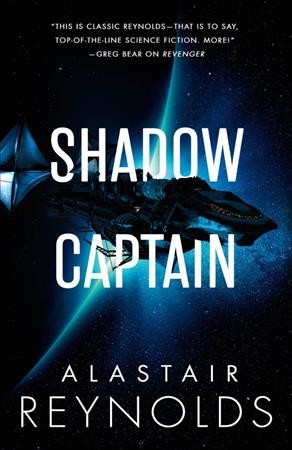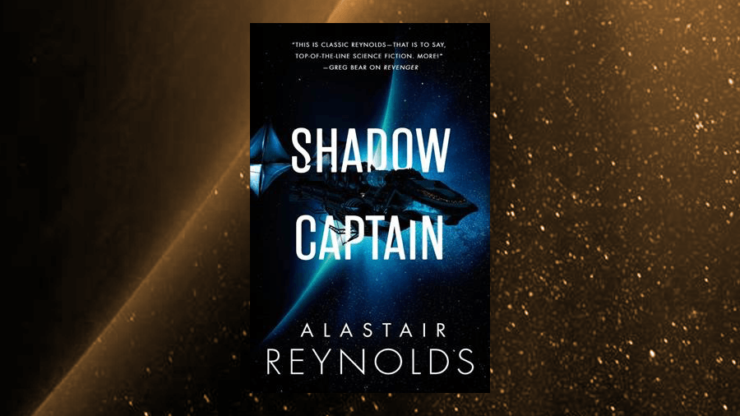We all know how revenge stories start. As the protagonist of such enterprises—complete, in all probability, with a shadowy past—you’re busy living your happy little life when, what do you know, along comes a kidnapper or a killer who takes something precious from you. Be it the love of your life, some particularly precious prize, or indeed a dog, you can’t pretend this awful thing hasn’t happened, much as you mean to, and so, as sure as the sun will set, you return to your formerly wicked ways, or find hidden depths inside yourself dark enough to put you on the path to payback.
We all know how revenge stories start, and we know how they end as well. Although you are very likely changed by the journey to hell and back you’ve survived by the skin of your teeth, you’ve managed, against all odds, to make the bad people pay. The justice the police or your partner or your puppy couldn’t or wouldn’t provide is ultimately done. But when you’ve gotten your revenge, what then?
That’s the compelling premise British Science Fiction Award winner Alastair Reynolds posits in his second novel set in the Congregation, but whilst its exploration of the relatively uncharted aftermath of such narratives is excellent—as is its expansion of the swashbuckling backdrop that has been such a boon to these books—Shadow Captain has neither the edge nor the energy of its propulsive predecessor.
The middle volume of the trilogy picks up right where Revenger left off, with the sisters Ness back together on board the ship once captained by their late nemesis, the deplorable pirate Bosa Sennen. But although Adrana and Arafura are again able to share the same physical space, psychologically they’re in very different places. Where once upon a time, not so very long ago at all—these siblings are still in their teens, to be clear—they were “united by the fever of a shared enterprise,” namely their quest to take to the stars rather than suffocate under the sponsorship of their failed businessman of a father, now they are altogether at odds.
But why, you might cry, when all their problems are solved? Well, because they’re not—not by a long shot. While Bosa Sennen may be dead, her loathsome legacy lives on in both Arafura and Adrana. Having immersed herself in Sennen’s peculiar possessions after coming a hair’s breadth from being possessed by the dread pirate herself, Arafura also appears to have taken on several of her obsessions, in particular her interest in quoins, which she, like the black-hearted buccaneer in whose footsteps she’s following, believes have “a meaning beyond mere currency. A clue, perhaps, as to the concealed mechanism of our civilisation.” In the interim, Arafura has all but assumed command of the Revenger, much to the chagrin of the rest of its crew—and her sister, too.
Adrana, for her part, hasn’t forgotten her torture in the so-called kindness room, or the hardships Arafura endured to save her from Sennen, but sometimes, she catches herself thinking that “perhaps I was not so grateful to have been rescued after all; [perhaps] Fura had denied me my own future just as it was opening, demanding that I play a secondary role in her own ascendance instead. I knew it was wrong of me; that these thoughts were merely the delayed consequence of Bosa’s conditioning, but that did not lessen them or their sting.”
It’s a shame that the sisters Ness play their respective resentments so close to their chests at the outset of Shadow Captain, as narratively, there’s just not a lot going on in the novel’s first third. Had the tension between Adrana and Arafura boiled over sooner rather than later, it’d be a whole different story, but a light touch of tension is all readers have to hold on to as the Revenger cruises from bauble to bauble and back again in search of sorely-need supplies:
So far, since taking Revenger, we had contended ourselves with the margins of the Congregation, holding to the shadows and generally not doing anything that might attract attention. But we could not go on like that indefinitely. We were not outlaws, exactly—at least, we did not think of ourselves as such. But then I found my thoughts returning to Surt, and the sail-flash she thought she had seen from the sighting room, and our automatic assumption that we were being stalked by another ship.
It was not how we thought of ourselves, I knew, but what others did.
Buy the Book


Shadow Captain
It’s a relief when, around the midpoint of the novel, having failed to find enough fuel to see the ship through any additional scavenging missions, the Revenger has to make landfall on a backwater wheelworld called Strizzardy, where they’re inexorably drawn into the orbit of the gangster in charge, Mister Glimmery—so-called because he’s in the late stages of the very same condition that’s incidentally afflicting Arafura. As an antagonist, Mister Glimmery doesn’t represent the level of threat Bosa Sennen did before him—he’s more of a bump in the road than the end of the road altogether—but he and his uncertain intentions give Shadow Captain shape, and a sorely needed sense of momentum.
Although there are other oversights that are apt to impede immersion, such as Reynolds’ evident indifference towards his narrative’s secondary characters, the lack of that last for so long—that is, the absence of an apparent impetus for all the crew’s toing and froing—is Shadow Captain’s single biggest issue. The author’s assertion in the acknowledgements that “the Revenger books arose from a plan for a series of linked short stories that were never actually written” goes some way towards explaining the holes in the whole that Reynolds has built on that basis, but a solution to the problem would have been preferable to this simple admission.
Thankfully, Shadow Captain does introduce several interesting new wrinkles to the Congregation in the interim, most notably its fascinating financial underpinnings. That the quoins Arafura is so captivated by “have a significance beyond their transactional value” is mooted so many times that the confirmation, when it comes, doesn’t have much impact. What does is the revelation of their nature, and the satisfying manner in which it makes sense of the “layers of strangeness” of this series’ setting. Come the conclusion, a crisis is a-coming, but not, perhaps, the kind of crisis you might expect to see in a young adult sci-fi yarn with brigands and mechanical hands.
Revenger was fun from word one, and if we face facts, Shadow Captain is not that, but beyond its lacklustre opening act, this book bounces back. With the introduction of Mister Glimmery, Reynolds rights his listing ship, and as the decaying relationship of the sisters Ness takes centre stage, and our understanding of the Congregation is roundly reshaped, Shadow Captain goes from strength to strength, setting the scene for a conclusion that has a real chance of recapturing the vim and the vigour of volume one.
Shadow Captain is available from Orbit.
Niall Alexander is an extra-curricular English teacher who reads and writes about all things weird and wonderful for The Speculative Scotsman, Strange Horizons, and Tor.com. He lives with about a bazillion books, his better half and a certain sleekit wee beastie in the central belt of bonnie Scotland.










